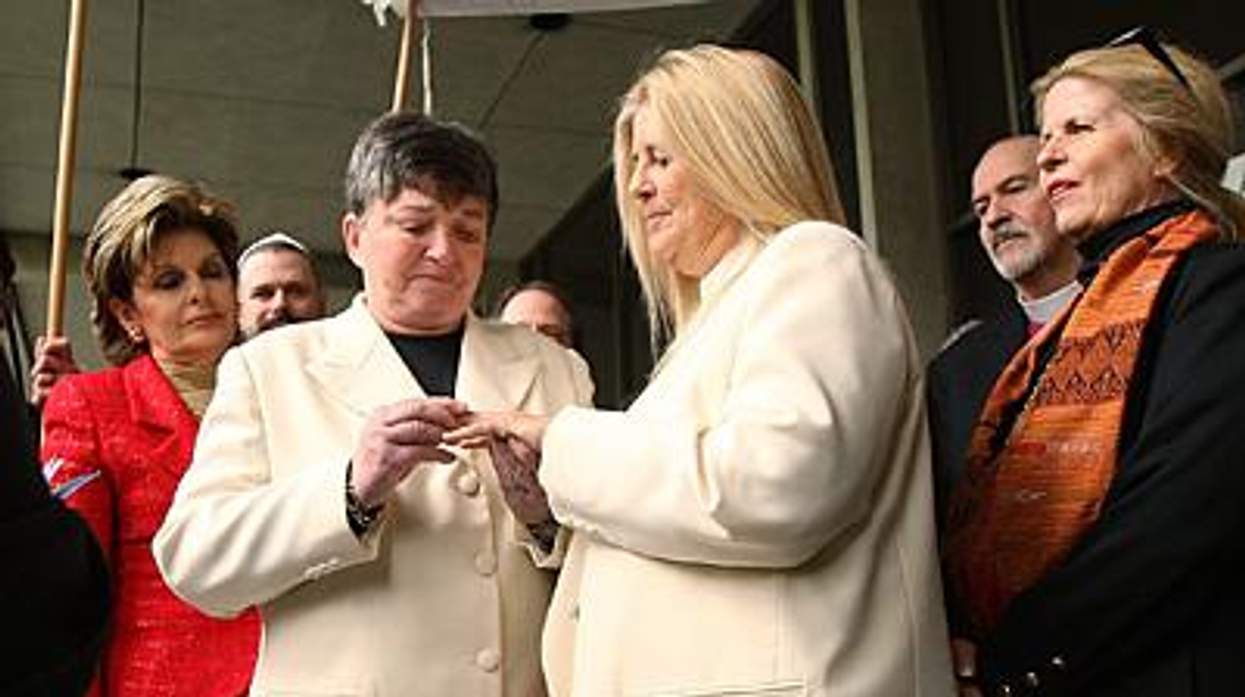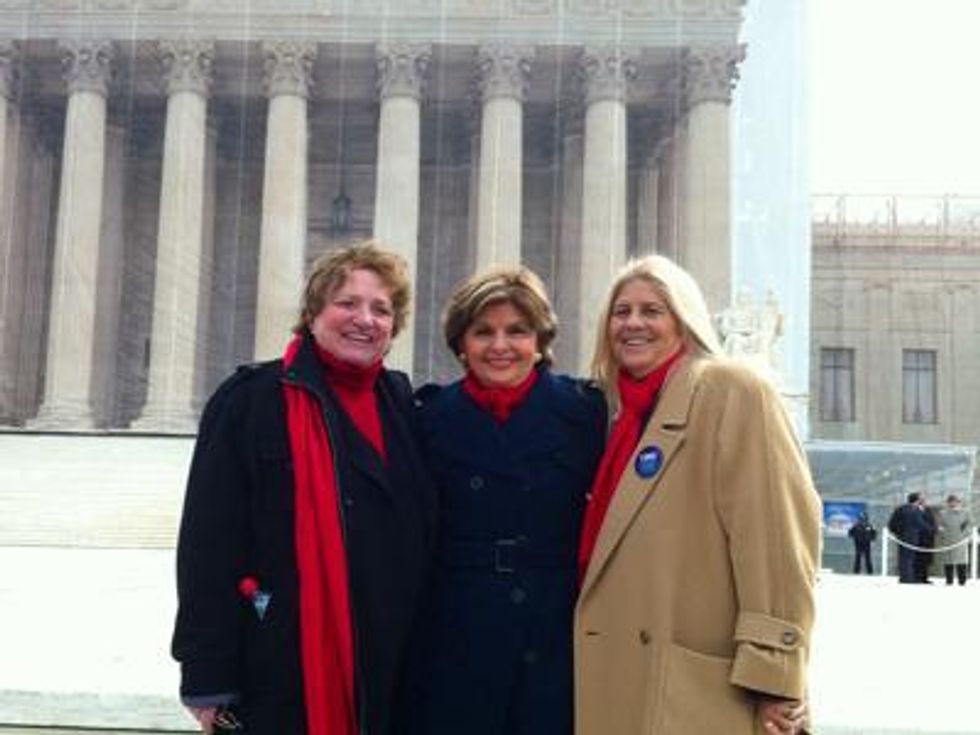Diane and I woke up at 5 a.m. in Washington, D.C., on Tuesday. But having arrived a day earlier, we were still on California time. To us, it felt like 2 a.m. But we didn't care because we were so excited. We'd been going to the courthouse in Beverly Hills with a small group of activists asking for a marriage license every year since 2001.
We became the first lesbian plaintiffs to challenge California's ban against same-sex marriage. Then we were finally married June 16, 2008.
Then along came Proposition 8. We worked all summer speaking wherever we could, producing PSAs with celebrities, the majority of whom were people of color, because we felt those communities needed to be reached. That summer, 18,000 couples wed across the state.
But Proposition 8 passed the day President Obama was elected. That morning, our attorney for our marriage equality case filed a petition on behalf of Diane and me to overturn Proposition 8. And when we sat in the California Supreme Court and heard the justices say things like, "being equal doesn't necessarily mean being equal in everything." What? My stomach turned and I sat on my rage as justice after justice, with the exception of Justice Moreno, backtracked on what they had done granting us marriage equality. I knew we were going to lose and started to organize "day of decision."
Fast-forward to this week, where we had the chance to be heard by the U.S. Supreme Court. No, Diane and I were not the plaintiffs this time. But we came to support them (Kris Perry, Sandy Stier, Paul Katami, and Jeff Zarrillo) because we know our entire community are the plaintiffs.
After hours of waiting and lines and anticipation, we finally entered the courtroom.
As the hearing went on, I started to feel sick. Justices described same-sex marriage as "an experiment" that would take society time to see if it "worked." Or, as Justice Samuel Alito put it, "You want us to step in and render a decision based on an assessment of the effects of this institution which is newer than cell phones or the Internet?"
I sat there getting sicker and sicker, feeling like I had been punched in the stomach. The indignity with which the highest court in the nation treated the distinguished people from our community sitting in that courtroom was almost unbearable. And we had to sit in total silence while the major civil rights issue of this century -- our marriages -- was called "an experiment."
We all walked out in silence. We had to be silent, but even when we exited the building, we were confused and disappointed at both the questions and the answers. We walked over to the press conference. I wanted to hear what Ted Olson would say. He spun it with talking points. I know he's an attorney and has to put the best face on things, but even for whatever the legal team was paid, they could not "feel our pain" because they had not experienced it. When their press conference was over and all of the talking points had been exhausted, they left to let the opposition speak. But the lawyers hadn't arrived yet. So our attorney, Gloria Allred, introduced us as the original lesbian plaintiffs in the case.
I started to walk away, but Gloria grabbed my arm and asked me to "say something." I hesitated because it was not our press conference. I had laryngitis from a cold, but I just could not contain my anger anymore.
 At left: Married couple Robin Tyler and Diane Olson with their attorney, Gloria Allred (center)
At left: Married couple Robin Tyler and Diane Olson with their attorney, Gloria Allred (center)
I stepped in front of the microphones and shouted something like, "They called us an experiment! We are not an experiment! We are a civil rights movement and it is not a matter of 'if' we will win, but when." I turned and walked away, feeling much better, not knowing C-SPAN was still taping me.
The conservative justices did not get away with using their position as a bully pulpit, although they tried with our side, especially against the phenomenal attorney Roberta Kaplan the following day. They pushed hard, and she stood her ground. Kaplan was brilliant. And her client, our hero, Edie Windsor, spoke, beaming at what had happened. She spoke from her heart at the following press conference. And we all walked away knowing that this day would go down in history; the day section 3 of DOMA was defeated.
We have no idea how the Proposition 8 challenge will go down. But I do know that all over the country, we should begin to organize now for another Day of Decision (which may happen this June) so that when we get the ruling there will be tens of thousands of us in the streets and at rallies showing them the difference between "an experiment" and a civil rights movement.
ROBIN TYLER is an activist from Los Angeles.


 At left: Married couple Robin Tyler and Diane Olson with their attorney, Gloria Allred (center)
At left: Married couple Robin Tyler and Diane Olson with their attorney, Gloria Allred (center)

































































Charlie Kirk DID say stoning gay people was the 'perfect law' — and these other heinous quotes